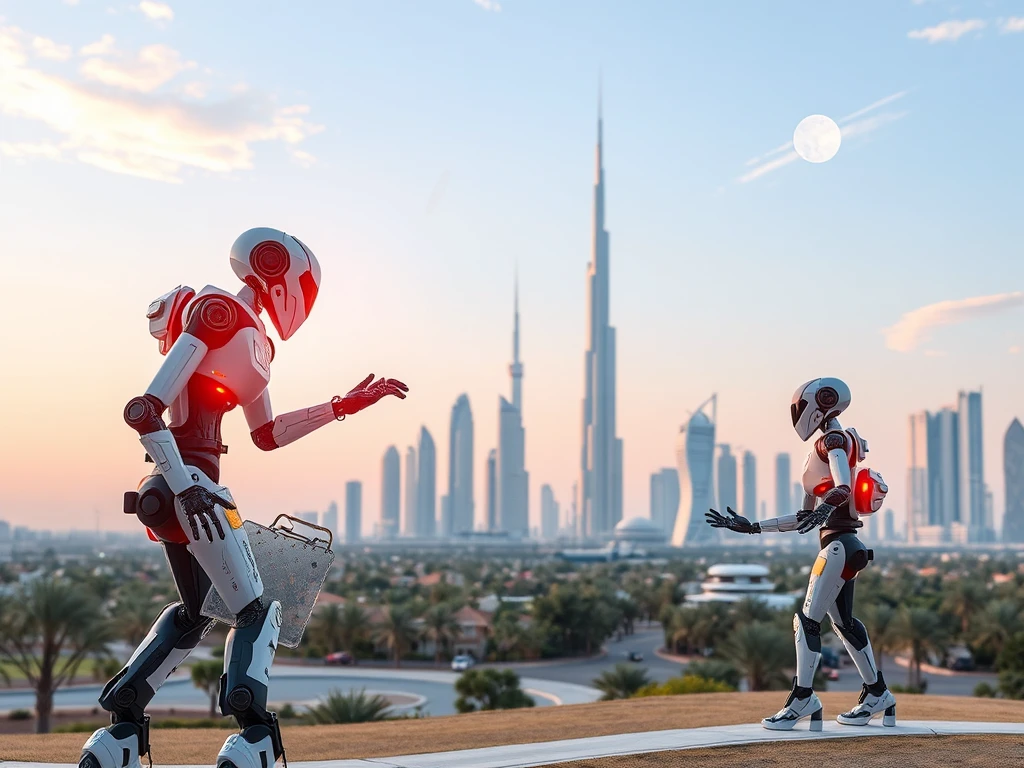UAE Accelerates Future Economy with Peaq’s Bold Tokenization Bet

For those plugged into the world of cryptocurrencies and blockchain, the concept of a ‘Machine Economy’ might sound like something out of science fiction. Yet, it’s rapidly becoming a tangible reality, particularly in forward-thinking regions like the United Arab Emirates. A significant move is underway as Layer-1 blockchain Peaq teams up with the Pulsar Group to establish a dedicated sandbox environment in the UAE, specifically designed to explore how tokenized machines and decentralized technologies can reshape our economic future. This initiative represents a concrete step towards an economy where autonomous devices don’t just perform tasks but also generate value and participate economically.
The UAE Machine Economy Free Zone Takes Shape
At the heart of this ambitious project is the creation of a Machine Economy Free Zone in Dubai. This isn’t just a theoretical exercise; it’s a dedicated space combining essential elements like specific regulation, robust infrastructure, and targeted investment. The goal is to provide a fertile ground for advancing use cases centered around a decentralized machine economy.
The free zone is structured to offer developers, businesses, and government bodies a controlled environment. Here, they can test and develop applications, including those focused on decentralized physical infrastructure (DePIN) networks. Peaq co-founder Max Thake described this vision as a “human-centric economy where autonomous robots, machines and devices create value, earn and trade.” The aim is to attract builders specifically focused on the DePIN and broader Machine Economy sectors, making this zone more specialized than traditional economic free zones.
Exploring DePIN Opportunities in the UAE with Peaq
The collaboration with Pulsar Group, an Abu Dhabi-based advisory firm, facilitates connections with Emirati enterprises. When asked about specific DePIN projects building on Peaq that could see deployment in the UAE, Thake provided several compelling examples:
- Community-powered air quality monitoring using wearable devices.
- Hyperlocal weather forecasting networks.
- Virtual power plants composed of community-owned devices enhancing grid flexibility.
- Using smartphones for measuring local noise pollution levels.
These examples highlight the practical applications of DePIN, moving from a niche blockchain concept to gaining mainstream attention. The potential market size is significant, with the World Economic Forum suggesting the DePIN market could reach $3.5 trillion by 2028, driven by blockchain and AI advancements.
How Tokenization Powers the Machine Economy Vision
A core component enabling this future is machine tokenization. The UAE sandbox provides a comprehensive testing ground for these applications. Machine tokenization systems are designed to reward tokenholders with a share of the revenue generated by specific machine activities. Thake offered a simple illustration:
“Let’s take an autonomous robo-cafe, for example. The cafe sells coffee, processing transactions digitally, and can report this data onchain for transparency. Tokenizing it could mean rewarding tokenholders for each cup the robot sells.”
This model creates a direct economic link between machine activity and token ownership, allowing individuals to potentially benefit from the productivity of autonomous assets.
Addressing Displacement: Universal Basic Ownership (UBO)
The rise of autonomous machines naturally raises questions about potential job displacement. The free zone’s framework supports the concept of Universal Basic Ownership (UBO). This system is envisioned to direct wealth generated by robots and autonomous agents towards individuals who might be displaced from traditional jobs. While still in its nascent stages, the Machine Economy Free Zone in the UAE is seen as an ideal environment to test and develop such forward-thinking economic models.
UAE’s Growing Hub Status for Tokenization and RWAs
This initiative aligns perfectly with the UAE’s broader strategic focus on becoming a global hub for tokenization, particularly for real-world assets (RWAs). Dubai’s Virtual Asset Regulatory Authority (VARA) has been actively updating its framework to facilitate bringing RWAs onchain. This regulatory clarity and support have already fueled rapid growth in tokenized asset activity within Dubai, notably in real estate, where blockchain-based transactions have reportedly reached billions of dollars. Projects like the region’s first licensed tokenized real estate project, launched by key government bodies, underscore the UAE’s commitment to integrating blockchain into its core economy.
Conclusion
The collaboration between Peaq and the UAE, centered around the Machine Economy Free Zone in Dubai, marks a significant step towards realizing the potential of tokenized machines and DePIN. By creating a dedicated environment for innovation, the initiative aims to build a future economy where autonomous devices contribute value, and individuals can potentially benefit through innovative models like tokenization and Universal Basic Ownership. As the UAE continues to embrace blockchain and RWA tokenization, projects like this sandbox are poised to play a crucial role in shaping the decentralized future.





